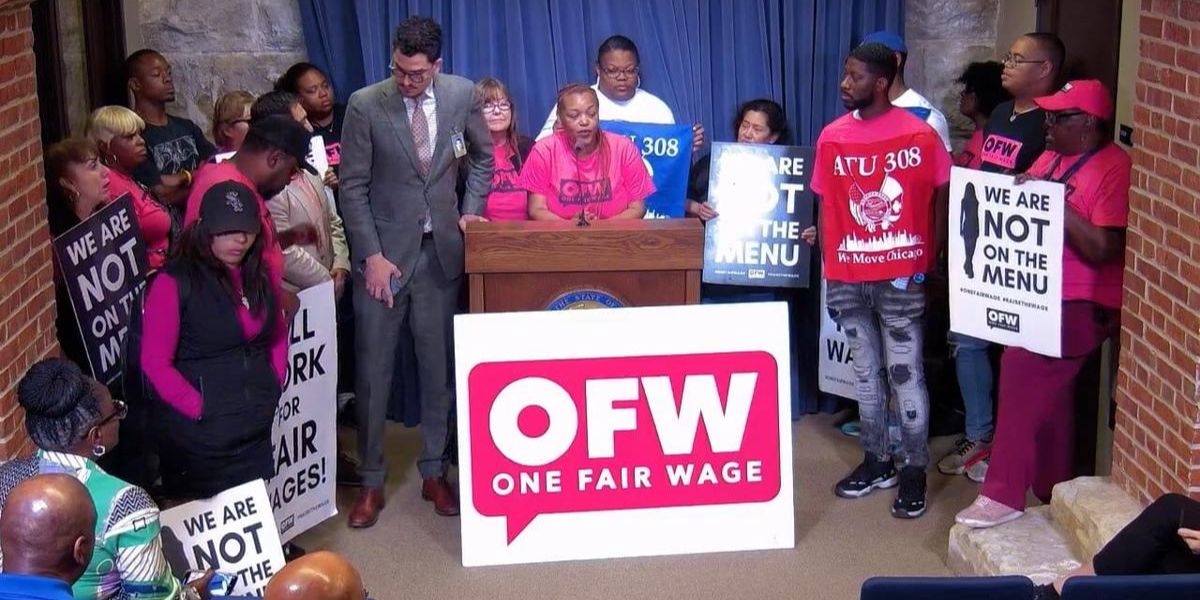CHICAGO — As Chicago enters the second year of its five-year plan to eliminate the sub-minimum wage for tipped workers, activists are calling for the policy to be expanded across Illinois. But some lawmakers and business leaders say the conversation needs to be more balanced before statewide changes are made.
On Monday, One Fair Wage organizers held an event on Chicago’s West Side to mark a year since the city launched its plan to raise the hourly wages of tipped workers. The group says the policy has already improved the lives of workers.
“Chicago is showing that fair wages and strong businesses go hand in hand,” said Richard Rodriguez, National Policy Director for One Fair Wage. He noted that tipped workers have seen a 42% increase in income over the last four years. The city’s tipped wage is set to rise from $11.02 to $12.62 an hour on July 1.
Chicago Mayor Brandon Johnson and several Cook County officials attended the event, applauding the effort to eliminate the sub-minimum wage. Rodriguez also credited labor unions and community partners for their role in the policy change.
However, not everyone agrees with expanding the measure beyond the city limits.
State Sen. Lakesia Collins, D-Chicago, who represents Chicago’s West Loop business district, said she’s heard mixed reviews from workers and business owners alike.
“Some workers are still struggling to make ends meet, while others preferred the old system,” Collins told The Center Square. “We have to look at the whole picture and make sure all voices are heard.”
Business leaders, including Illinois Restaurant Association President Sam Toia, have voiced concerns. Toia cited data showing Chicago lost 5,200 jobs and more than 100 restaurants since the elimination of the tipped credit began last July.
“The reality is, higher menu prices, reduced hours, and closures are happening,” Toia said, adding that other cities, like Washington, D.C., have paused similar policies after experiencing economic fallout.
One Fair Wage counters that new business licenses are on the rise, citing city data that shows 856 new food establishment licenses issued and a 50% decline in business license cancellations.
At the state level, Rep. Lisa Hernandez, D-Cicero, filed House Bill 2982 to eliminate the sub-minimum wage, but the measure failed to advance before the legislative session ended May 31.
Collins said the conversations are ongoing. “We know businesses are economic drivers, but workers deserve fair wages. It’s going to take time and honest dialogue to figure out the right path forward for Illinois,” she said.









